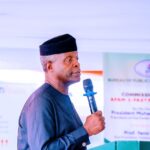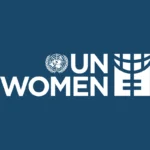The Nigerian political sphere has, until recently, been dominated by the older generation. However, from the look of things, there is gradual evolution: a bourgeoning movement of young Nigerians – an increasing crescendo of youthful voices clambering for change – challenging the entrenched paradigms of yesteryears that are eager to have their mark on the political stage.
There is a palpable surge in youth involvement in political parties and grassroots movements, fuelled in part by a desire for change and disillusionment with the status quo. With 53.7 per cent of Nigeria’s population aged 15 to 65, and a median age of 18, Nigeria has one of the largest youth populations globally, with individuals under the age of 35 comprising over 60 per cent of the total populace: a demographic bulge pulsating with untapped potential and palpable energy.
Despite this, however, elected offices have not seen the fair share of representation by youth – a symbolic cause of systemic barriers to entry and entrenched political hierarchies. Statistics, however, indicate a promising trend in this regard, with the increasing trend of youth voter turnout in the last two presidential elections.
In 2019, youth turnout was said to be 34.75 per cent of registered voters. Though specific turnout percentages for youth are not yet available in 2023, it is mentioned that young people between the ages of 18 and 34 made up the highest percentage at 39.65 per cent of all registered voters, and over 70 per cent of the 12 million new registered voters were under age 34, showing potentially high youth turnout.
- We’re overwhelmed by magnitude of disaster in Nigeria – Red Cross
- Navy decries hostility from Benue host community
It is now high time we begin a diagnosis of the malaise affecting the political engagement of youth by taking a closer look at the barriers holding them in shackles. The deficiency in political education acts as a silent contagion, eating away at the roots of civic consciousness, leaving many in ignorance of their rights and responsibilities bereft of knowledge needed to navigate labyrinthine corridors of power.
These inequalities are at best malignant tumours that have already metastasized to all levels of the socio-economic strata, therefore making the playing field uneven and perpetuating a vicious cycle of disenfranchisement. Additionally, the prevalence of corruption and patronage/godfather politics further disincentivise idealistic youth from participating in what they view as a game against them.
In a digital age, social media has proven to be the theatre of modern-day activism and a potent platform in shaping political discourses, mobilising grass-roots movements that have given the youths of Nigeria the propensity to transcend geographical boundaries.
The Nigerian youth indeed have been able to seize these opportunities provided by the new media to let their voices be heard in raising awareness about social injustices and and hold elected officials accountable. Social media has become a catalyst for political activism and civic engagement, serving both as a megaphone for dissent and a rallying point for collective action.
Through organisations like YIAGA Africa, Enough is Enough Nigeria, and the Not Too Young To Run movement, youth have mobilised from all corners of the country to demand more accountability and transparency in governance. These have spurred visible action-from advocacy and community organising to grassroots mobilisation-yet inspire a fresh generation of leaders. Grassroots campaigns are the surgical strikes upon systems of inequity, inserting the advocacy scalpel to cut through the binding cords of political apathy and cold indifference.
You cannot overemphasise the importance of youth representation in governance. Without young voices in the corridors of power, a whole generation of aspirations and concerns is suppressed. As custodians of Nigeria’s democratic destiny, potent remedies are needed to fortify the resilience of the country’s youth.
Investment in the contribution of young people towards decision-making processes allows them to add new perspectives, innovative solutions, and a deep understanding of today’s issues.
Thankfully, nudging signs of hope are gradually appearing on the horizon, with young and pioneering leaders making incursions into the glass ceilings of Nigerian politics, showcasing the transformational power of youth leadership in realising socioeconomic development and the common good. This heralds that young politicians are championing new causes, from education reform to youth empowerment. Their presence revitalises democratic institutions, injects a fresh perspective into policy debates, and forms a sound basis for future political contests.
Empowerment of young Nigerians with appropriate knowledge, skills, and confidence that should effectively enable them to participate in politics is important for raising informed and engaged citizens and, at the same time, helping to build a strong democracy. Political education and capacity-building programmes are quite vital in the provisioning of youth with the abilities needed for them to navigate through complicated political environments.
Youths’ involvement in all electoral processes is essential for ensuring the credibility and representativeness of democratic bodies. In Nigeria, there is an increasing consciousness among young people of the strength of their vote in determining the future of their country. From registering as voters to election observation missions, youth-led initiatives are playing a major role in mobilising their peers to participate in the electoral process and making sure elected officials are accountable for their actions.
Concrete policy recommendations and solutions are required to address the systemic barriers to youth political participation. Reforms within the electoral process that can assure inclusivity, transparency, and accountability level out the playing field for the young aspirants.
Similarly, youth-friendly policies and programmes such as affirmative action measures, investment in capacity-building initiatives, and youth development funds might ensure access to political opportunities and resources for youths. Furthermore, it requires investment in political education, leadership training, and mentorship programmes that will help mould the future leaders of Nigeria.
Crucially, it is essential to connect the older and younger generations in Nigerian politics. Seasoned leaders have a vital role to play in guiding and supporting the youth in their political journeys, sharing their valuable insights and experiences while paving the way for the leaders of tomorrow.
The younger generation offers fresh perspectives and innovative ideas, that can significantly enrich the political landscape. Through building a culture of collaboration and fostering environments that encourage intergenerational conversations and role-modelling we will tap into the collective wisdom and energy of generation to provide key levers for incremental change and transformation.
Still, we need active citizenship and leadership by Nigeria’s youths to guarantee a bright future for Nigerian politics. From this perspective, considering the trend of Nigeria’s future political graph, there is a scope for astonishing transformation.
The energy and enthusiasm of the nation’s youth are strong enough to attract and reshape the trajectory of Nigerian politics for generations to come. But realising this vision requires concerted action from all stakeholders to prioritise and support youth engagement in politics, recognising it as a catalyst for progress and transformation.
This journey into an inclusive and equitable political Nigeria begins with us- the young people. This is our moment — to rise to the occasion; let us mould this future that we hope for each other and for our great country. The time is now, and we, in this present form, can shape a brighter tomorrow for Nigeria.
Dr Halimah Sanda wrote from Kano and can be reached via [email protected]

 Join Daily Trust WhatsApp Community For Quick Access To News and Happenings Around You.
Join Daily Trust WhatsApp Community For Quick Access To News and Happenings Around You.


